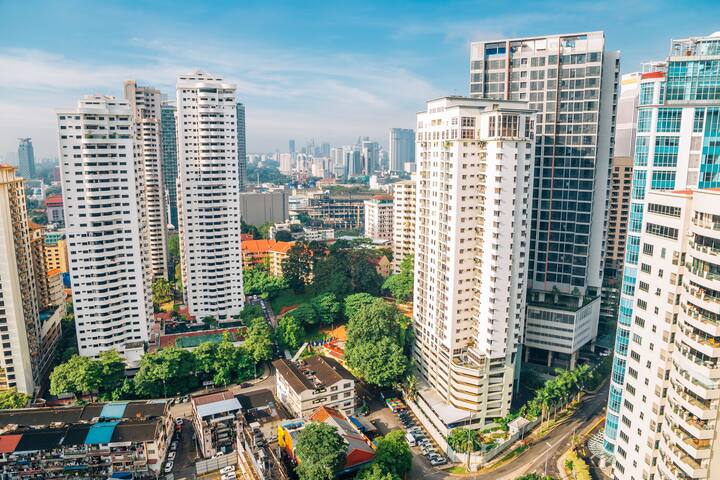Building Harmony
Empowering responsible hosting with reference by-laws

Reference by-laws
Creating a world where anyone can belong means creating an environment where everyone–including hosts, guests and neighbours next door–feels supported. That’s why we’ve partnered with Messrs. Zaid Ibrahim & Co. (In association with KPMG Law) to develop a set of suggested by-laws that help condominium and apartment buildings better manage their Short-Term Rental Accommodation (STRA) activity.Here are examples of some by-laws that can help you and your Joint Management Body (JMB) or Management Corporation (MC) to better manage STRA activities.

Notifying your JMB or MC
As hosts, it's important to inform your JMB or MC, if you plan to conduct STRA activities in a building. This helps them keep track of which units are being used for this purpose, enabling better building management. Here are some examples of simple rules to help with notifying your management:
- Hosts should submit a notification form to their JMBs or MCs.
- Each notification may be valid for a specified duration, e.g. a year from the submission date.
- Hosting may only begin after JMBs or MCs have been notified.

Parking rules
Informing guests: Before guests arrive, hosts should let guests know of any designated parking spaces for their vehicles, and how to access these areas.Vehicle Registration: The developer, JMB or MC may ask hosts to register their guests' vehicles and duration of their stay. Non-Compliance: If the parking guidelines are not respected or followed, vehicles may be removed in line with the building’s parking policies.
Usage of common facilities
Usage hours: Hosts should inform guests about opening hours for common facilities like the swimming pool and gymnasium.Proper etiquette: While using shared building facilities, guests are advised to behave in a manner that is not likely to cause offence or nuisance to others. This may include:
- not using offensive language
- not having the proper attire for usage (e.g. gym attire and towel or swimsuits in pools)
- respecting the cleanliness of common facilities


Ensure guests are clear with the rules of the building to avoid complaints or penalties
If by-laws are broken, a complaint can be lodged by submitting a "complaint form" to the developer, JMB, or MC. Under the Strata Management Act 2013, violators may receive a warning, fines up to RM200, or the matter may be taken to the Strata Tribunal to ensure compliance or seek compensation for any resulting losses or injuries.
The full reference building by-laws by Messrs. Zaid Ibrahim & Co. (in association with KPMG Law), including detailed descriptions of each of the by-laws mentioned above as well as other by-laws that are not mentioned, can be found here*:
Download the proposed by-laws*We recommend that you do your own research as this article isn’t comprehensive, and doesn’t constitute legal advice. Also, as we don’t update this article in real time, please check each source and make sure that the information provided hasn’t recently changed.
Frequently asked questions
What is the Strata Management Act?
Strata buildings in Malaysia are regulated by the Strata Management Act 2013 (SMA 2013). SMA 2013 empowers Joint Management Bodies (JMBs) and Management Corporations (MCs) to implement rules, known as by-laws, to effectively manage day-to-day operations in their buildings. These rules could cover aspects like parking regulations, ensuring health and safety measures such as having first aid kits available, and clearly marking fire escape routes within the building. Read more about SMA 2013 here.
Who can make additional building by-laws under SMA 2013?
Developers
Developers can make by-laws during the initial period where the building is under the developer’s management and before the JMB is established.
Joint Management Bodies
JMBs can make by-laws to the building after the developer hands over the management to them.
Management Corporations
MCs can make by-laws to the building once they takeover management of the building from the JMB.
How can by-laws be passed?
According to section 70(2) of the SMA 2013, JMBs and MCs can pass by-laws through a special resolution, typically during an Annual General Meeting (AGM) or an Extraordinary General Meeting (EGM). This requires the approval of at least 75% of unit owners in the building. Read more about SMA 2013 here.
How can by-laws be passed?
According to section 70(2) of the SMA 2013, JMBs and MCs can pass by-laws through a special resolution, typically during an Annual General Meeting (AGM) or an Extraordinary General Meeting (EGM). This requires the approval of at least 75% of unit owners in the building. Read more about SMA 2013 here.